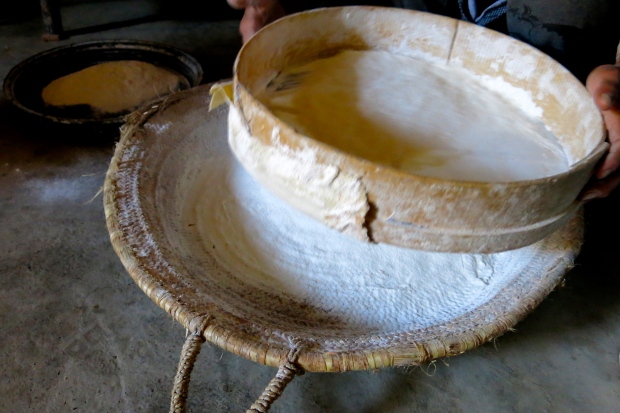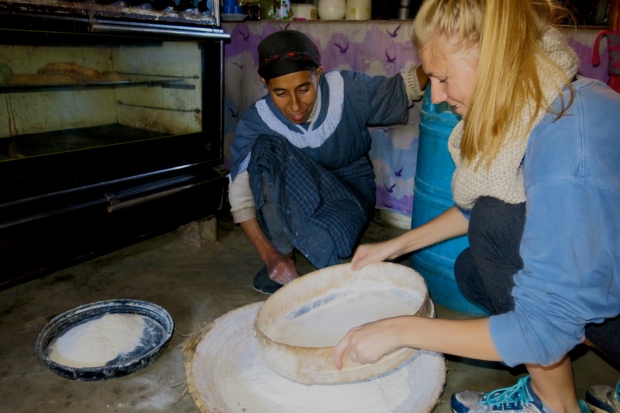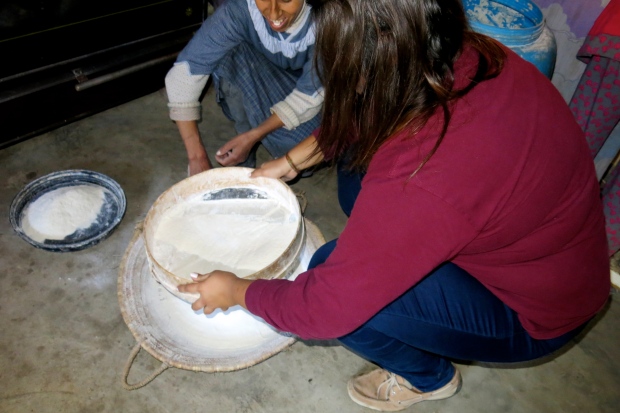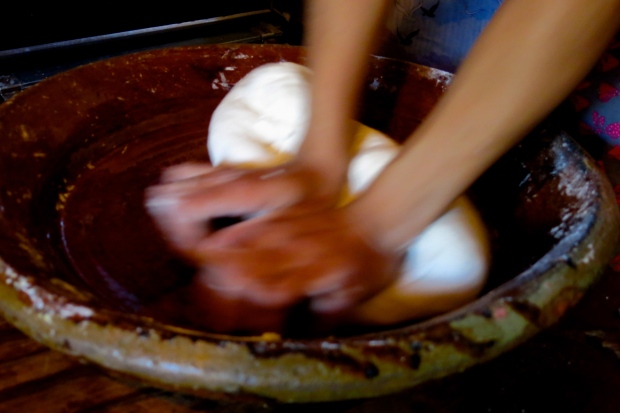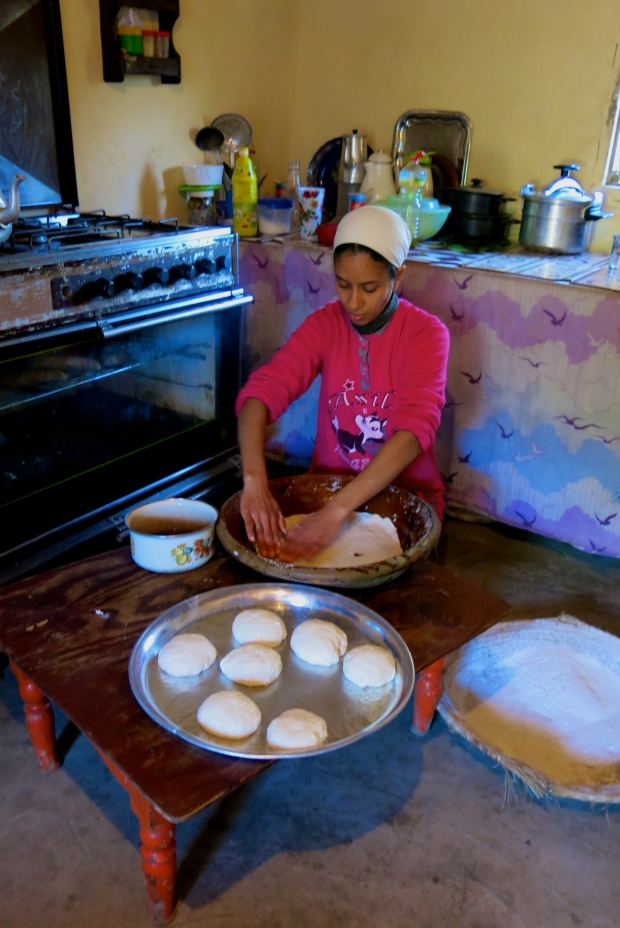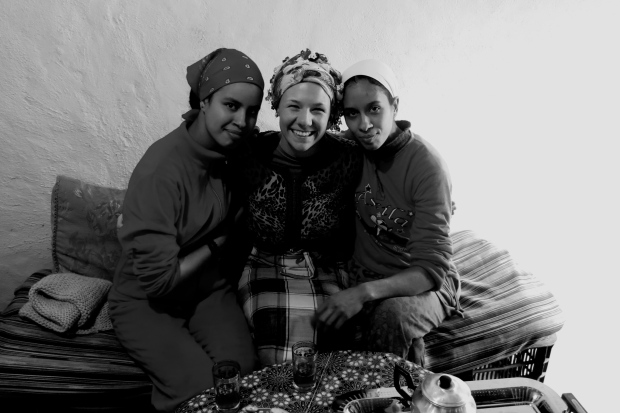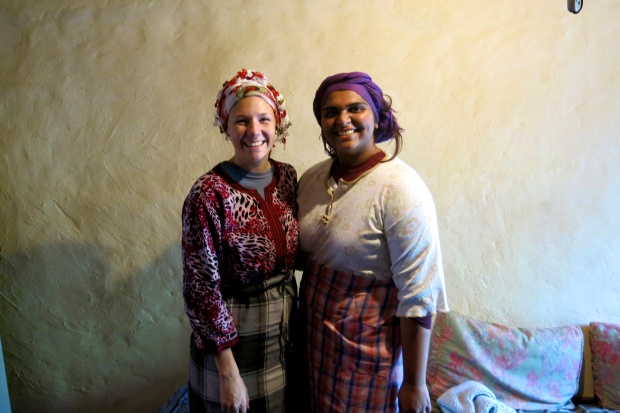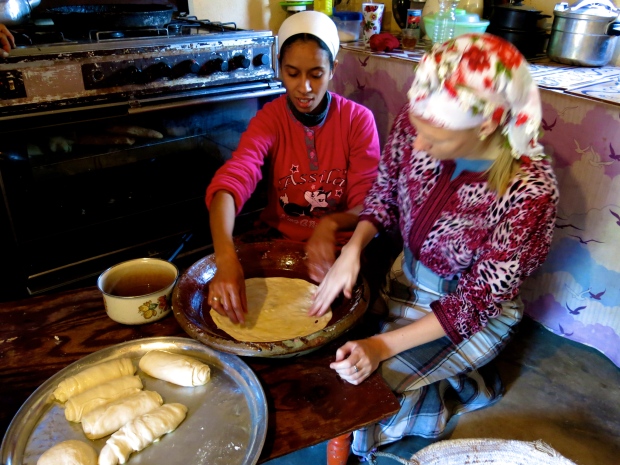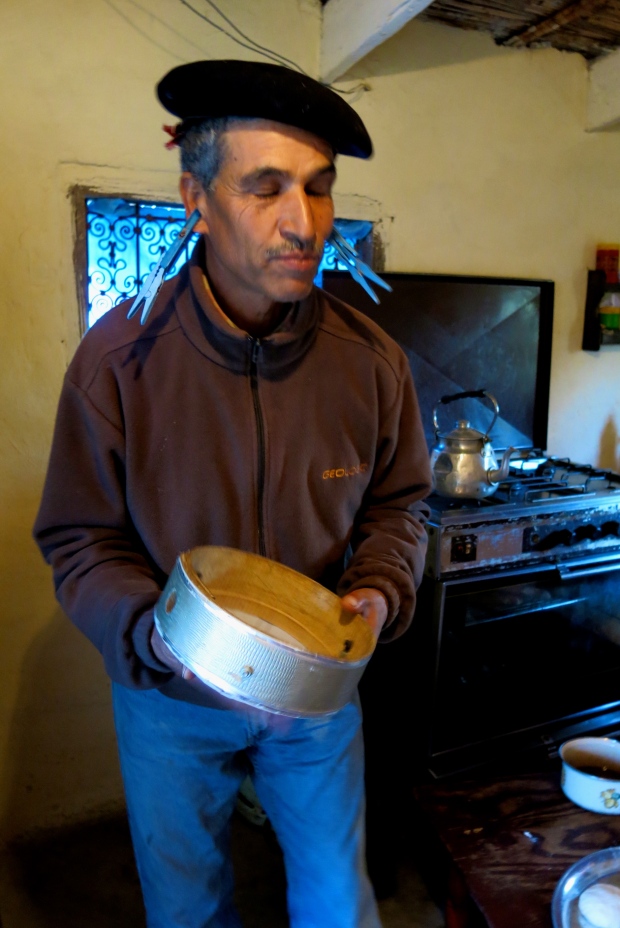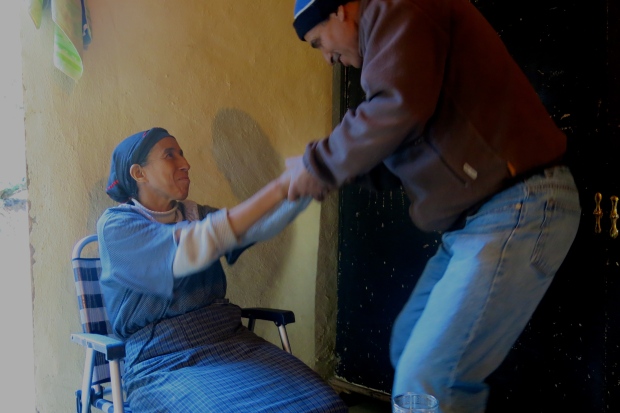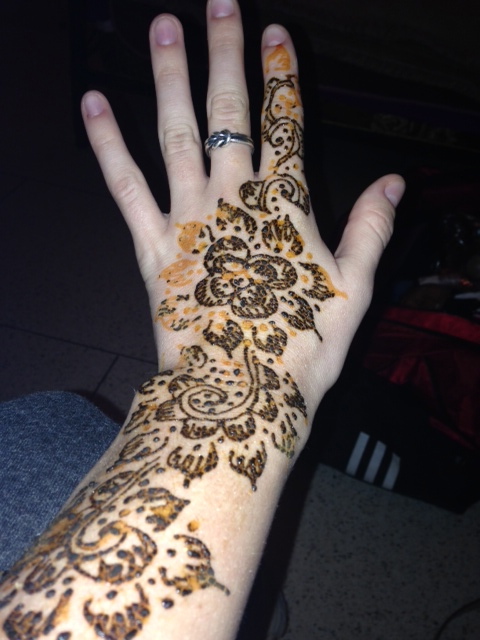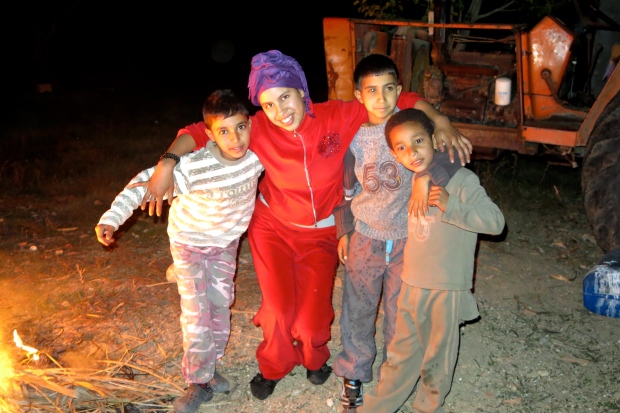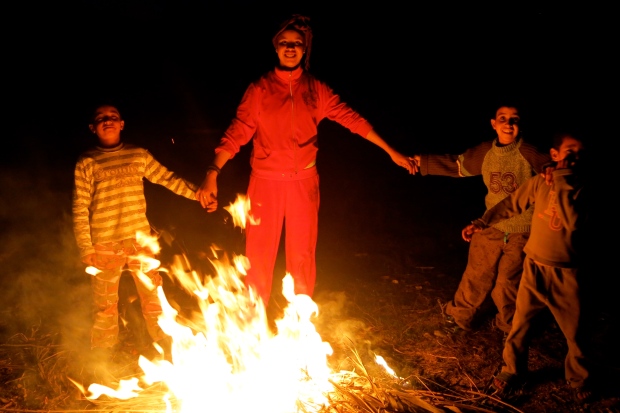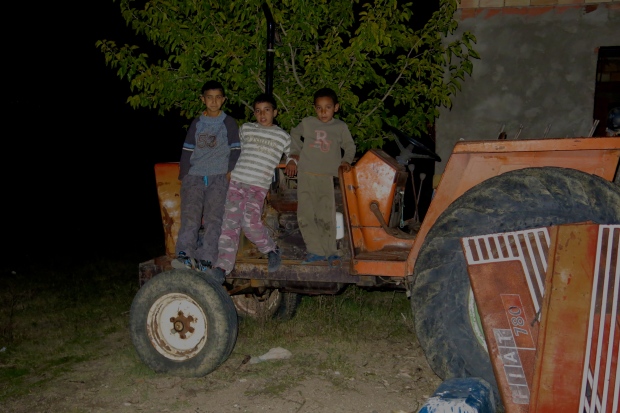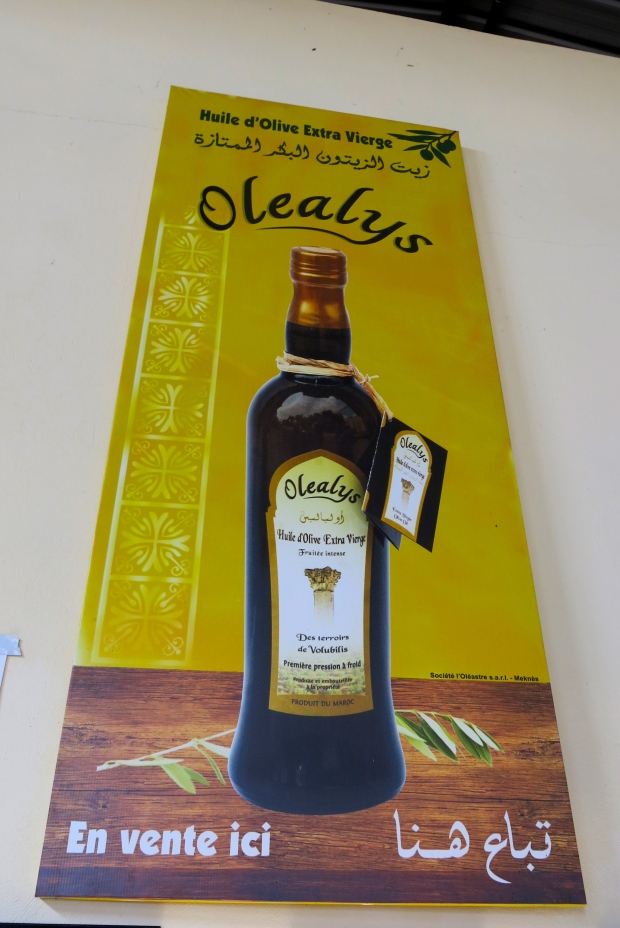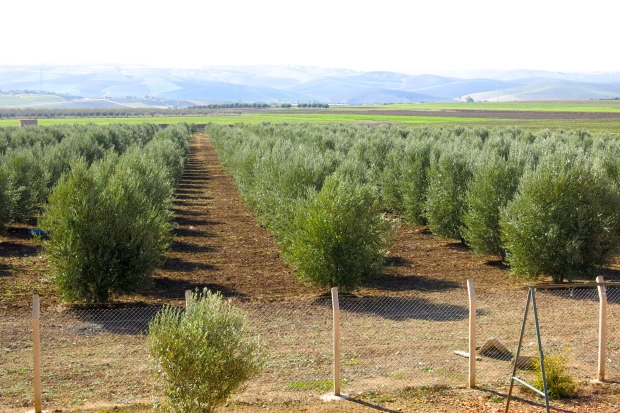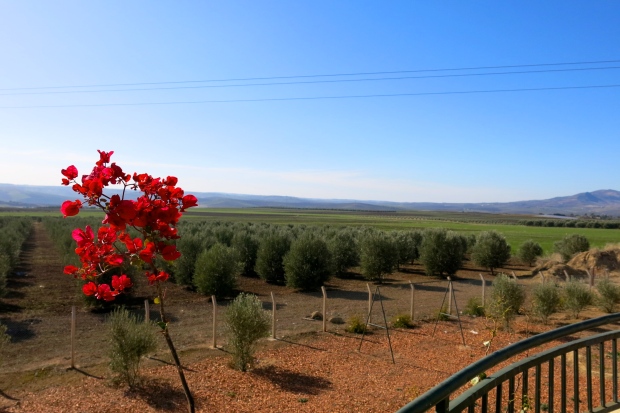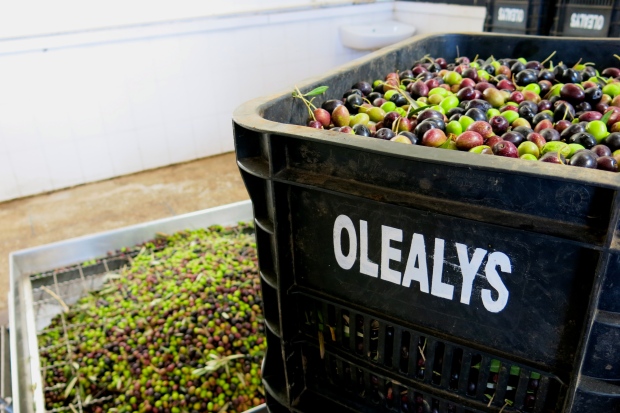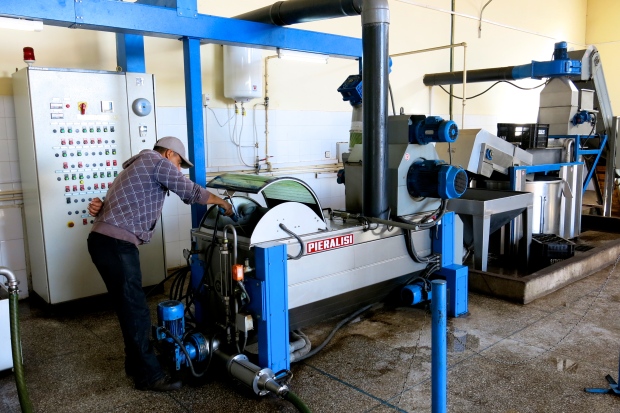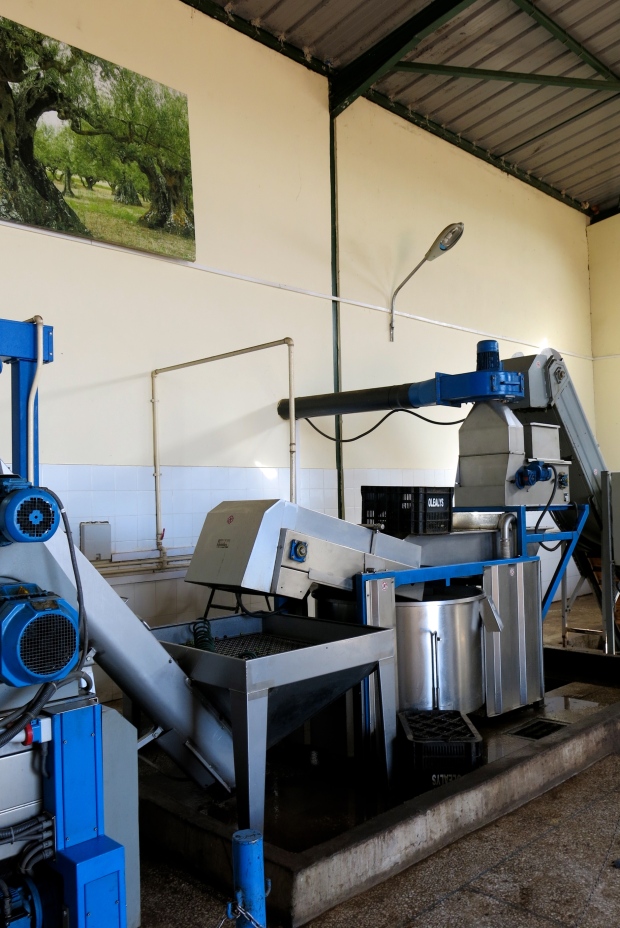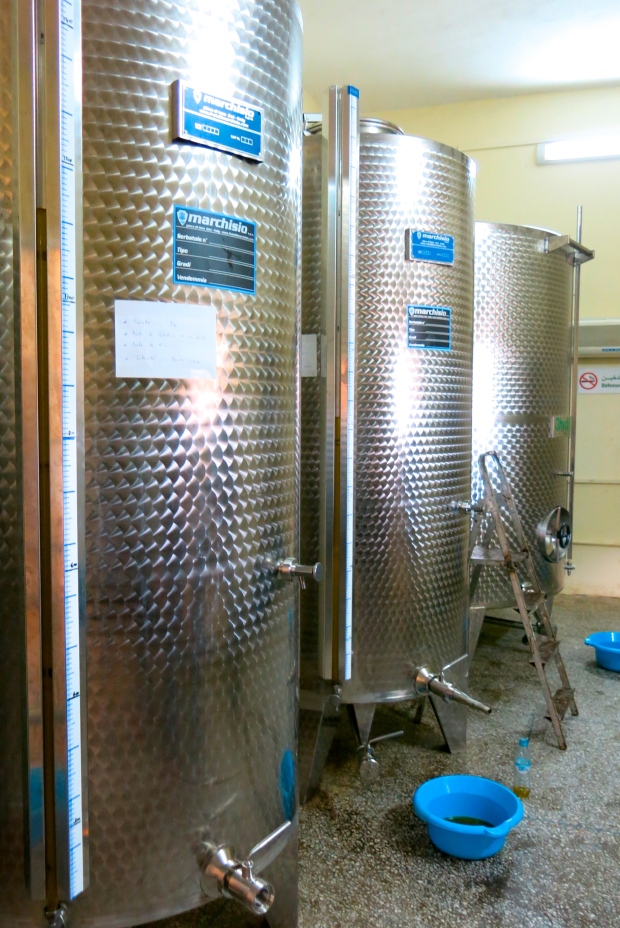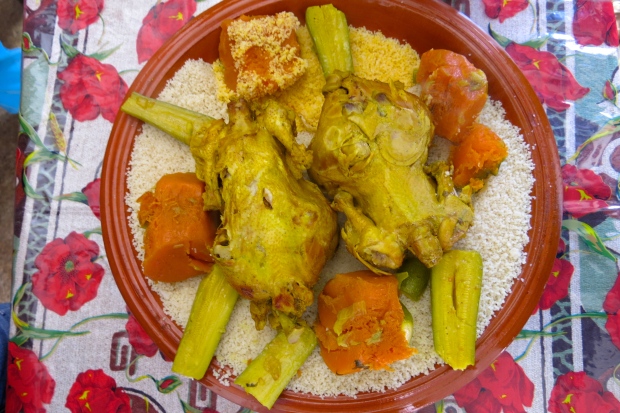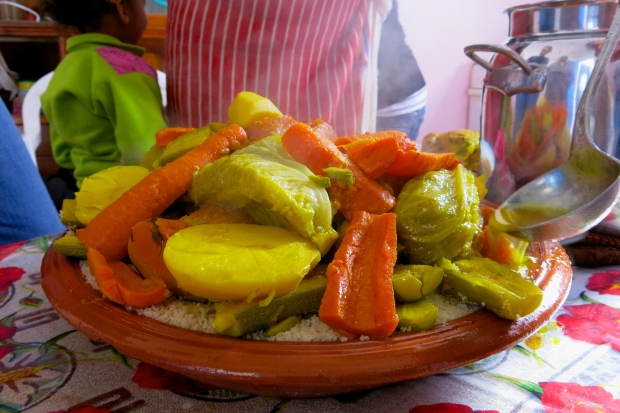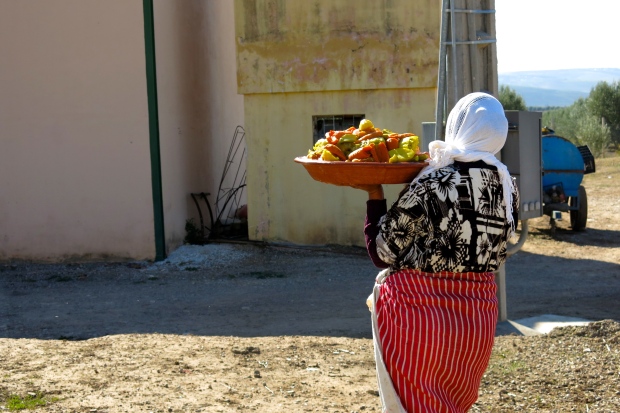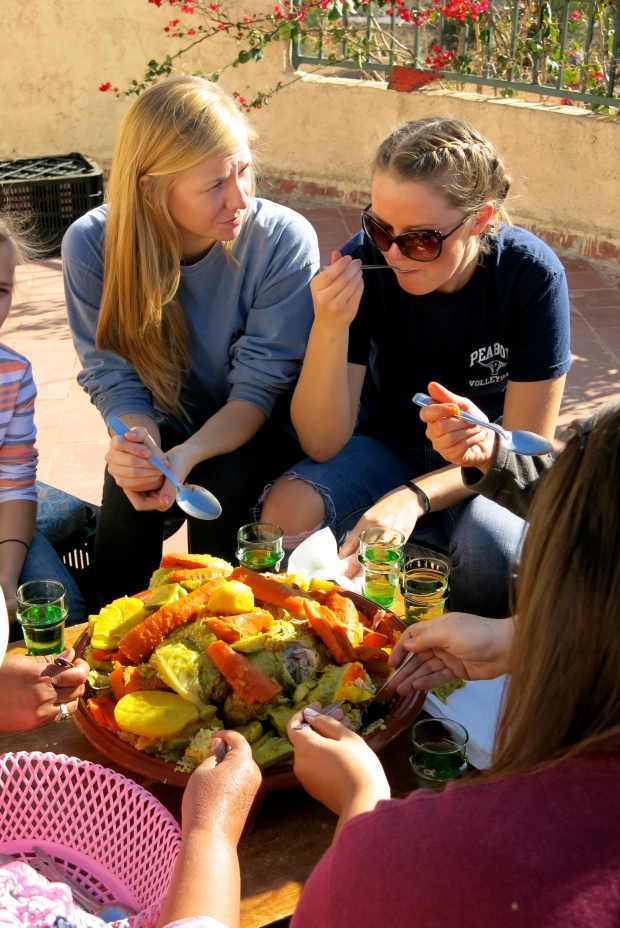On Friday of last week, (after touring Olealys Olive Oil Plant), our class was split up into small groups of two to spend the afternoon with a rural Moroccan family.
My friend Laila and I were put together with a family who lived far out on the Olive Tree farm – all of which only spoke Darija (the local dialect). It was a family with two daughters, Zarah and Soukayna, and والدة | mother and والد | Father. Zarah and Soukayna were my age, Zarah was 21 and and Soukayna was 16. They greeted us with kisses, grabbed mine and Laila’s hand to show us their home, and wouldn’t let our hands go until the second we had to leave. I felt so welcome.
The goal of the class was to learn how communication is more than language – and learning how to milk a cow, pick olives and learn how to prepare and cook the famous Moroccan breakfast, Malawi.
First things first; sifting flour – which I might add I’m awful at. The whole family laughed at me attempting to shake the pan back and forth – hey whatever makes them happy amiright? After dropping the pan numerous times, I let my Laila step in for me.
After sifting the flour, water is added to make one big dough ball. Zarah quickly formed the small individual dough balls, rubbed them with olive oil from olives they had picked themselves, and let them sit and rise for a few minutes before flattening them out into thin pancakes.
Not soon after, Laila and I were swept away into the other room where the girls insisted on dressing us up in their clothing and wrapping our hair like a ‘true Moroccan girl.’
They kept telling us we were جميلة جدا | very beautiful.
Now that we were properly dressed, we were allowed back into the kitchen to help finish cooking the Malawi. Surprisingly, even though Laila could sift flour, I was the one who mastered the art of rolling up the Malawi “Cocoons,” and in turn receiving numerous rounds of applause (okay maybe only a couple), and was then asked if I was able to marry their older brother who is in his late 20’s.
Yep, that escalated quickly. That’s usually how conversations go in Morocco!
It was also funny to notice the small, tiny, cultural differences that you would never think of coming up. The girls kept pointing to all my piercings and laughing, giving me strange looks as if I was alien for having a tiny piece of metal through my nose. They also insisted on playing MTV Cribs on their small television set for us and playing American rap music. At one point the dad was singing to an old Britney Spears song – Laila and I could not stop laughing at how weird it was! American culture is such a huge influence on everyone, and it’s not until moments like these, where I’m in the middle of nowhere, with no wi-fi, no central heating, only the bare necessities, that truly make me realize it.
After cooking and eating, the rest of the day was filled with dancing and henna. The dad left for a second and came back into the kitchen with a barret on looked at us and said, “Ca Va? Bonjour?” in a really snotty French accent pretending to twirl his barely noticeable mustache. It made us all laugh hysterically!
After our fill of dancing, eating, laughing and henna, the family finished out the night with a bonfire. They saw that we were cold and grabbed as much brush from outside to make a fire – it was a really awesome gesture that I think a lot of people would overlook, but I thought it was the most welcoming wonderful gesture that the family could have done for us.
Overall, I learned the importance of non-verbal communication (which was ultimately the task of our class that day). There are so many other ways to learn about a person and communicate with them besides having a common language! It’s something that I have really valued and adapted to since being abroad – and further a characteristic I’ve gained that will come in handy throughout my entire life.
Spending the day with this family was beautiful and a memory I will remember for the rest of my life. Even if it’s awkward at times trying to communicate with someone who doesn’t speak your language, everyone, at some point in their life, should push themselves to get out of their comfort zone… you won’t regret it.

